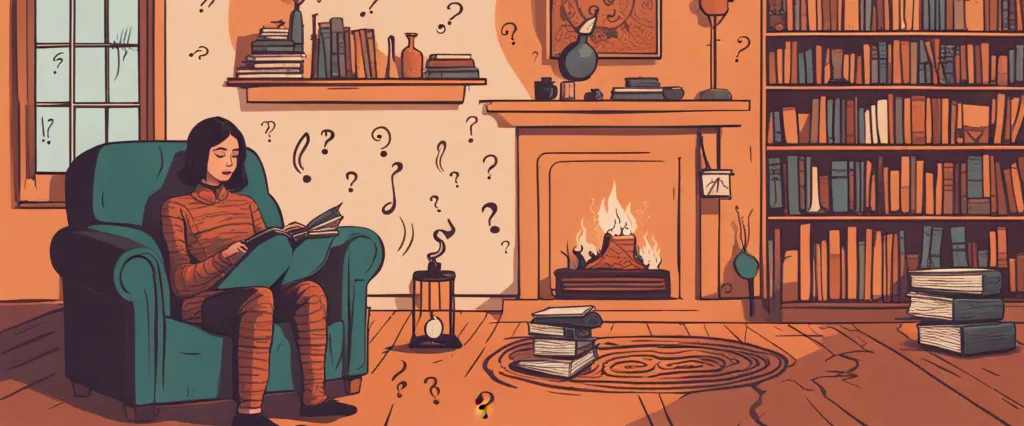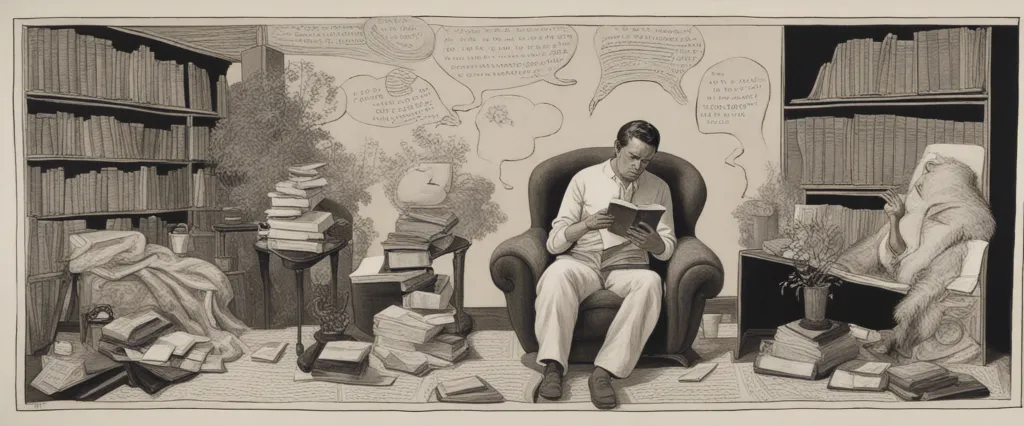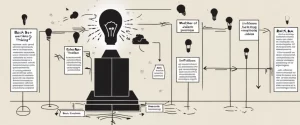——The Power of Vulnerability by Brené Brown & The Lost Art of Listening by Michael P Nichols

In a society that often values strength over vulnerability and talking over listening, two books emerge as beacons of hope, empowering readers to rediscover the lost art of vulnerability and the power of authentic connection. Brené Brown’s acclaimed work, “The Power of Vulnerability,” and Michael P. Nichols’ thought-provoking masterpiece, “The Lost Art of Listening,” dive deep into the complexities of human communication and provide strikingly different yet complementary perspectives on the subject. Both books, while exploring distinct dimensions of vulnerability and listening, ultimately share a common goal: to unravel the layers of self-protection and break through the barriers that hinder authentic and meaningful connections in our lives. As we embark on this comparative study, we will delve into the core themes addressed within each book, highlighting their unique viewpoints, examining their overlapping insights, and discovering how they complement one another in illuminating the path towards cultivating richer, more compassionate relationships. From cultivating courage in vulnerability to unraveling the intricacies of active listening, these captivating works ultimately remind us of the inherent human need for vulnerability and genuine connection. Through this comparative analysis, we aim to uncover the profound impact that vulnerability and listening have on our lives, and the transformative potential that lies within each of us to forge deeper connections in an increasingly disconnected world.
Brief Summary of Two Books
The Power of Vulnerability by Brené Brown
The Power of Vulnerability by Brené Brown is a transformative book that explores the connection between vulnerability and courage, and how embracing vulnerability can lead to a more fulfilling and authentic life. Brown, a renowned social scientist and researcher, delves into her own personal experiences and extensive research to uncover the power and importance of vulnerability in our relationships, work, and personal growth.
In the book, Brown challenges the idea that vulnerability is a weakness and instead asserts that it is the foundation of true connection and belonging. She argues that when we allow ourselves to be vulnerable, we open ourselves up to experiences of love, joy, and creativity. By embracing vulnerability, we can cultivate empathy, compassion, and resilience.
Brown also explores the concept of shame and its detrimental effects on our lives. She discusses how shame can hold us back from truly connecting with others and how vulnerability can help to counteract these feelings of shame. She provides practical strategies for practicing vulnerability and building resilience, such as cultivating self-compassion and setting boundaries.
Throughout the book, Brown shares stories of individuals who have embraced vulnerability and overcome challenges in various aspects of their lives. She weaves together these stories with her research findings to provide a compelling and relatable narrative.
Overall, The Power of Vulnerability offers a powerful and empowering message – that by embracing vulnerability, we can lead more authentic and wholehearted lives. Through her engaging storytelling and research-backed insights, Brown encourages readers to step out of their comfort zones, take risks, and embrace their vulnerability as a path towards personal growth and connection with others.
The Lost Art of Listening by Michael P Nichols
The Lost Art of Listening” by Michael P. Nichols is a book that explores the importance of effective listening in our personal and professional relationships. The author emphasizes that despite being a fundamental skill, listening has become increasingly challenging in today’s fast-paced and distracted world.
Nichols highlights how poor listening habits can lead to misunderstandings, conflicts, and broken connections. He discusses the various barriers to effective listening, such as our own preconceptions, biases, and the tendency to form quick judgments. Additionally, he explores how our reliance on technology and constant distractions can hinder our ability to truly listen and understand others.
The book offers practical strategies and techniques to cultivate better listening skills. Nichols emphasizes the importance of being present, demonstrating empathy, and actively seeking to understand the speaker’s perspective. He also encourages readers to practice reflective listening, which involves paraphrasing and summarizing to ensure accurate comprehension.
Through real-life examples, stories, and exercises, Nichols provides readers with a guide to becoming more attentive and empathetic listeners. He emphasizes that effective listening is not only about hearing words but also about understanding emotions, intentions, and underlying messages.
Overall, “The Lost Art of Listening” serves as a reminder of the profound impact that genuine listening can have on our relationships, fostering better communication, deepening connections, and ultimately improving our overall quality of life.
Comparison between Two Books

Similarities in Relationship & Communication
In both The Power of Vulnerability by Brené Brown and The Lost Art of Listening by Michael P Nichols, there are profound similarities when it comes to discussing relationship and communication.
1. Importance of vulnerability: Both books emphasize the significance of vulnerability in creating and maintaining healthy relationships. Brené Brown explores vulnerability as being the key to cultivating connection and intimacy, while Michael P Nichols highlights the understanding that vulnerability is essential for effective listening. Both authors argue that embracing vulnerability allows individuals to truly connect with others on a deeper level.
2. Active listening: Both books stress the importance of active listening in effective communication. Michael P Nichols focuses on the lost art of listening and highlights the need for individuals to truly engage in active listening, demonstrating empathy, and being fully present. Similarly, Brené Brown discusses active listening as a crucial component of empathy and understanding, enabling individuals to create an open and safe environment for sharing.
3. Empathy and understanding: Both authors emphasize the significance of empathy and understanding in building strong relationships. Brené Brown notes that empathy is different from sympathy and requires individuals to be non-judgmental and fully present with others. Similarly, Michael P Nichols discusses the importance of empathy in effective listening, as it allows individuals to understand and validate the experiences and emotions of the speaker.
4. Connection and belonging: Both books explore the innate need for connection and belonging in relationships. Brené Brown highlights that vulnerability allows individuals to experience a sense of connection with others, resulting in a deeper sense of belonging and fulfillment. Likewise, Michael P Nichols emphasizes that active listening and empathy create an environment where individuals feel understood and connected, fostering healthier and more meaningful relationships.
5. Authenticity: Both authors stress the significance of authenticity in communication and relationships. Brené Brown emphasizes that vulnerability requires individuals to show up authentically, embracing their imperfections and accepting themselves for who they truly are. Michael P Nichols highlights how being genuine and authentic in listening allows for more meaningful and effective communication.
In summary, both The Power of Vulnerability and The Lost Art of Listening converge on the importance of vulnerability, active listening, empathy, connection, and authenticity in fostering healthier and more fulfilling relationships. These concepts collectively promote open and honest communication, creating an environment where individuals feel understood, valued, and connected.
Divergences in Relationship & Communication
The Power of Vulnerability by Brené Brown and The Lost Art of Listening by Michael P. Nichols are two influential books that delve into the areas of relationships and communication. While they both highlight the importance of connection and understanding within interpersonal interactions, they differ in their approaches and focus.
Brown’s book, The Power of Vulnerability, emphasizes the significance of vulnerability in relationships. She contemplates on how embracing vulnerability can lead to stronger connections and more authentic communication. Brown’s research-based approach demonstrates that allowing oneself to be seen and heard, flaws and all, can engender trust and deep intimacy. By being vulnerable, individuals can dismantle barriers that hinder true connection and foster empathy and compassion. Her book emphasizes personal growth and self-awareness as crucial components of cultivating meaningful relationships.
On the other hand, Nichols’ book, The Lost Art of Listening, concentrates on the act of listening itself. Nichols acknowledges the declining skill of listening in our fast-paced, technology-driven world, and he explores various facets of active listening. Nichols provides insights into the importance of being fully present, suspending judgment, and truly understanding the other person’s perspective. By honing our listening skills, individuals can enhance their relationships, resolve conflicts, and build stronger connections. The book emphasizes developing listening skills as crucial to effective communication.
The divergence in these books lies in their primary focus. While Brown principally concentrates on vulnerability and its impact on relationships, Nichols centers his book around the art of listening. Brown’s approach involves self-reflection and vulnerability as catalysts for fostering deeper relationships, while Nichols emphasizes the act of listening as an instrument for understanding and connection.
However, it is noteworthy that vulnerability and listening are not mutually exclusive, but rather complementary elements of effective communication and healthy relationships. The Power of Vulnerability recognizes the importance of listening and being receptive to others, while The Lost Art of Listening acknowledges the significance of vulnerability in opening up oneself to genuine connection.
In summary, while both books explore the domains of relationships and communication, The Power of Vulnerability by Brené Brown focuses on vulnerability as a means to foster relationships, while The Lost Art of Listening by Michael P. Nichols highlights listening as an essential skill for effective communication.

Conclusion
Both “The Power of Vulnerability” by Brené Brown and “The Lost Art of Listening” by Michael P. Nichols offer valuable insights, but it ultimately depends on your personal interests and what you hope to gain from reading.
If you are looking to explore the concept of vulnerability, understanding its power in personal growth, building connections, and embracing imperfections, then “The Power of Vulnerability” by Brené Brown is an excellent choice. Brown is a renowned researcher in the field of vulnerability and shame, and her book offers profound insights backed by scientific research.
On the other hand, if you are interested in improving your communication skills and deepening your ability to listen actively and empathetically, “The Lost Art of Listening” by Michael P. Nichols is an ideal pick. Nichols, a renowned therapist and professor, explores the importance of effective listening in various aspects of life, from personal relationships to professional settings.
Both books have garnered positive reviews and have the potential to provide you with valuable knowledge and insights. Consider your personal goals and interests, as well as the area in which you would like to focus on personal growth, to determine which book might be more worthy of reading for you.


